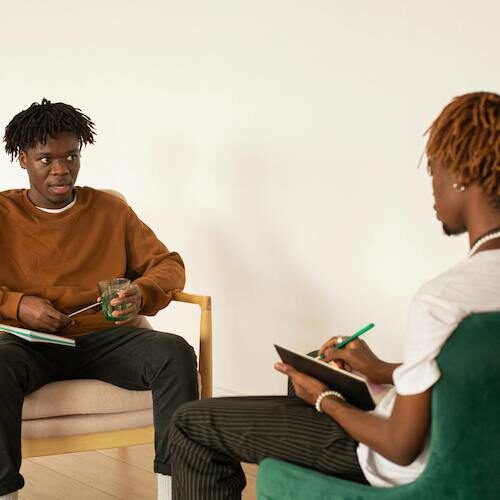Two are better than one, because they have a good return for their labor: If either of them falls down, one can help the other up. But pity anyone who falls and has no one to help them up.¹
This piece of ancient wisdom from scripture highlights the importance of connection and support. In a world where men are becoming more disconnected and isolated from one another, it encourages us to make sure you have someone to help you up.
For years I tried to break free of unwanted sexual behaviors on my own. I tried internet filters, grinding my teeth, and all the strength/discipline I could muster. When this brought only marginal progress, I joined a Small Groups Online group, but did not stick with it. Being vulnerable was tough and admitting my failures was humbling. I cancelled my membership several times. I wanted to keep my struggle as private as possible, to just deal with it on my own.
While I was slow to learn, I finally recognized that I needed support from others in order to make progress. I committed to going to my online small group every week. It was difficult at first, especially when I had a “bad” week and just wanted to hide from others. Progress was not immediate, but through the support of my group and some close friends I started to gain ground.
You may ask, is this type of accountability worth the risk of being vulnerable? I believe the answer is yes, because it allows us to get out of the shame cycle and secrecy that keeps us stuck. Carl Thomas, one of this ministry’s leaders has a similar take in his book When Shame Gets Real, where he says:
Transparency allows others into our lives and gives them permission to speak truth into our circumstances. It provides an avenue for authentic sharing, true encouragement and the sharpening of one another’s minds. It allows us to step out from the shadows and divorce ourselves from the shame we feel.²
Carl is right: the very thing we fear, having to be real about our behaviors and struggles, is actually what helps us on our journey to freedom. Transparency in the form of strong accountability relationships is beautiful, because as Carl mentions, it allows others to encourage us and to “sharpen” each other through mutual experiences and struggles.
Accountability for me comes in many forms. I have a weekly check-in call with a close friend who was the best man at my wedding. We talk about how our week went recovery wise and while we often veer off onto other topics, we always try to encourage and support each other in this area.
My wife is another person who provides accountability, checking in with me regularly to see how my recovery is going. She is super supportive and both encourages and challenges me. My therapist also provides another person to keep me accountable and helps me to dive deeper into my mindsets and habits. Finally, I also check in regularly on the Live Free app, where I will post a short account of how my day went to my small group. Having multiple layers of accountability may not be necessary for some, but for me it has proven extremely beneficial.
So what makes a successful accountability relationship? Here are two things I have found:
1. It needs to be regular and consistent. I have learned that engaging in accountability only when you have a major fall or only when you are doing well isn’t nearly as helpful as having a regular schedule. Consistency is crucial to successful accountability. This may mean having a scheduled phone call with your accountability partner or meeting for coffee once a week. For example, my buddy and I have our check in phone call every Thursday at 8pm. The consistency of knowing we will talk each week (regardless of how my week went) is very crucial.
2. Find someone you can trust. An accountability partner should be willing to ask the hard questions but the relationship won’t work if you aren’t both in it together. Both parties should have a mutual understanding of what is helpful for the other. This may require an open discussion as you are considering the accountability relationship. Opening up to another person about your struggle can be difficult so it is important to find someone you trust to speak into your life.
If you are having trouble finding accountability, Small Groups Online is a great place to start. These are all guys going through a similar struggle so it’s a safe place to share in a group setting and get input from other guys. Not only that, but the groups meet every week at the same time, so the consistency piece is already built in.
While the group support is amazing, it also provides the opportunity to form an individual accountability relationship if you connect well with one of the guys. I have found many guys from my groups to be great sources of support and encouragement and it’s comforting to know they are only a phone call away.
If you are on the fence about joining a group or finding more accountability, I encourage you to go for it. Take the risk to get others involved. It will be worth it. We are not meant to do this journey alone.
- Ecclesiastes 4:9-10, New International Version (NIV)
- Thomas, Carl. When Shame Gets Real, page 105


